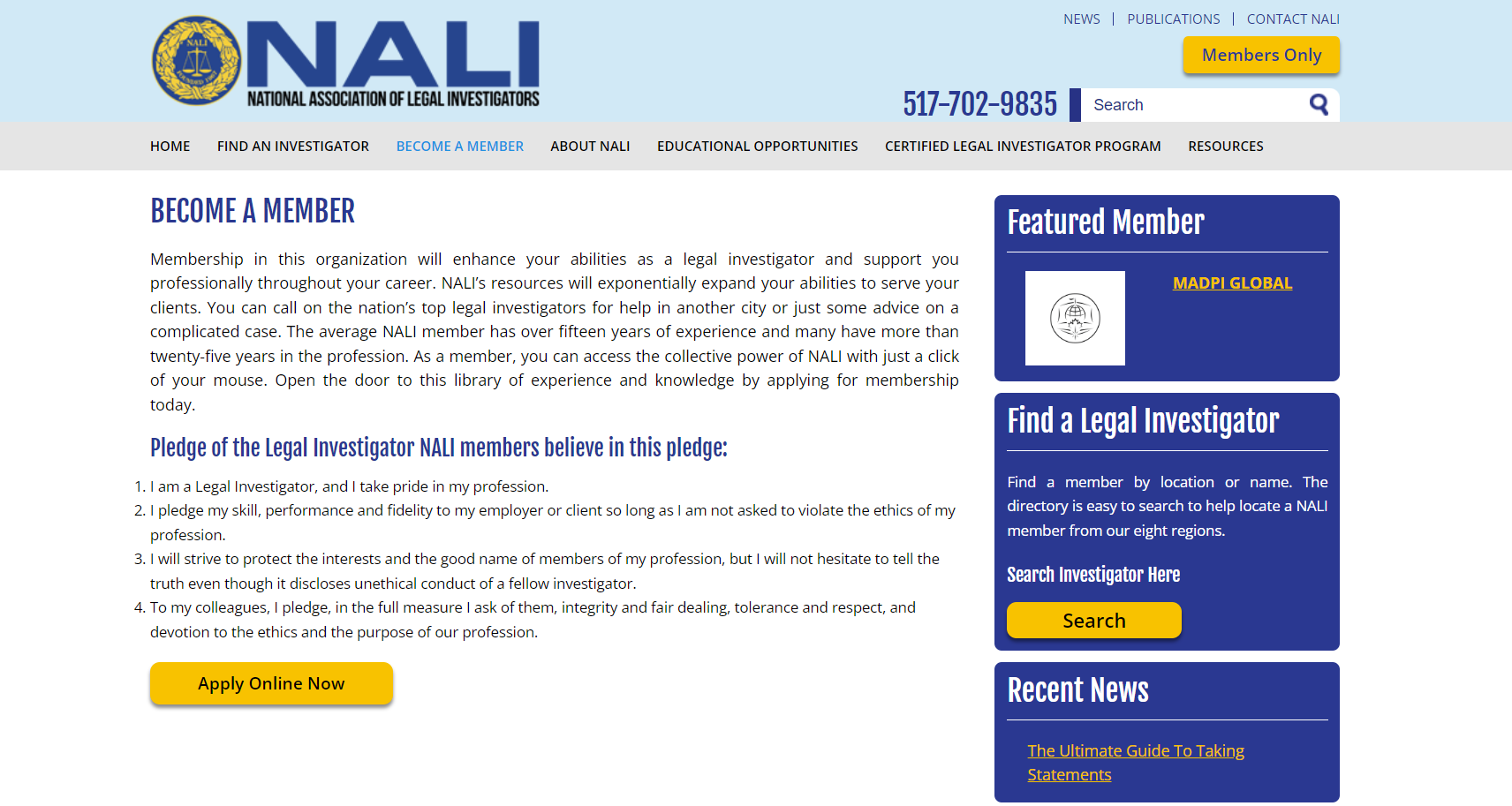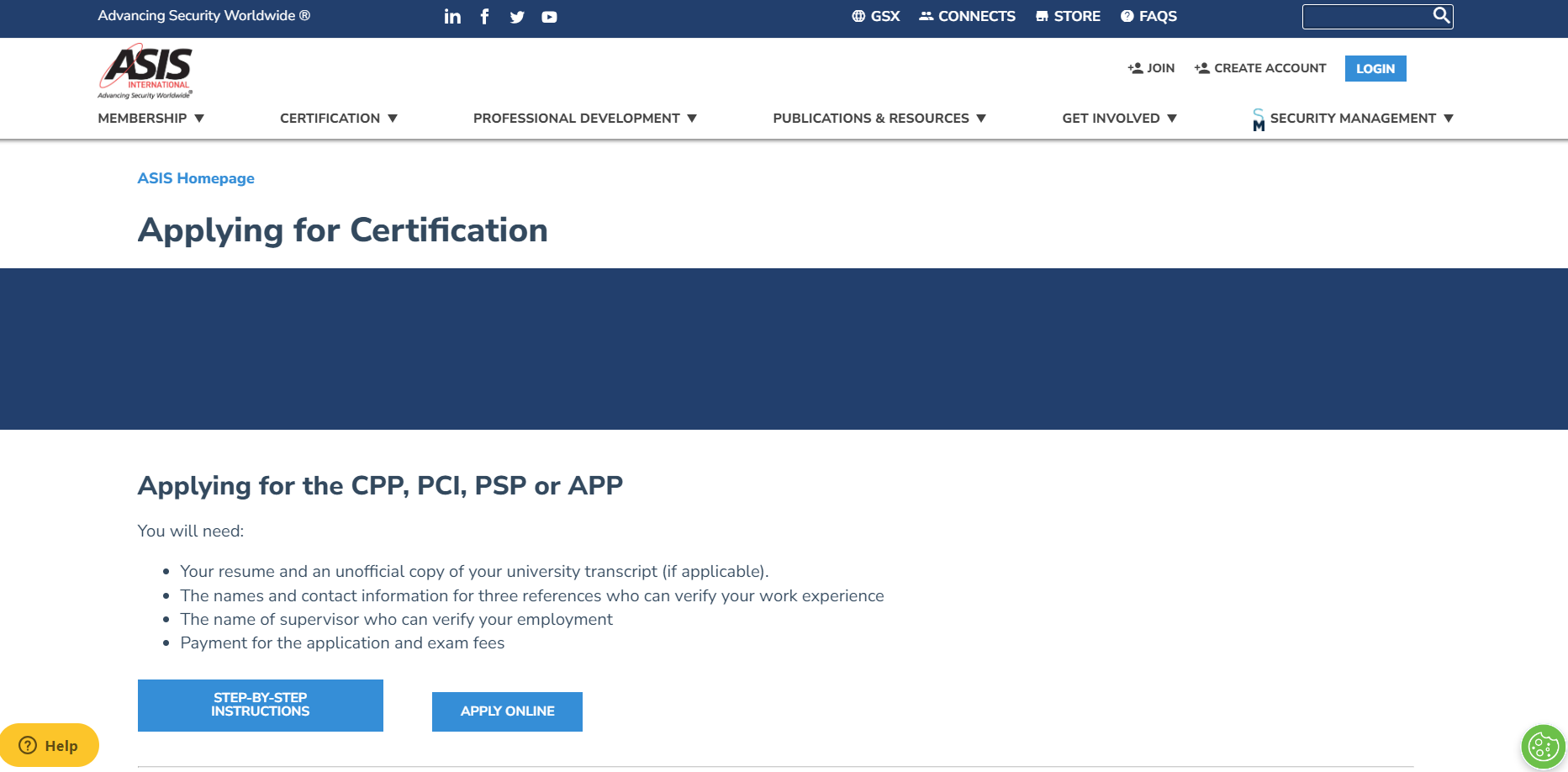
Suppose you’ve always been intrigued by the world of investigations and have a knack for unraveling mysteries. In that case, a career as a private investigator might be the perfect fit for you in Nebraska. Private investigators play a crucial role in assisting individuals, businesses, and even law enforcement agencies in gathering information, uncovering facts, and solving cases. In addition to learning the ins and outs of investigation techniques, it is important to understand the legal aspects of running your own private investigation business.
Establishing an LLC in Nebraska is popular for many private investigators as it provides legal protection and facilitates smooth business operations. This article will outline the steps you need to take to Become a Licensed Private Investigator in Nebraska.
Webinarcare Editorial Team will help you gain knowledge through thorough research and market study. Before becoming a private investigator in Nebraska, all the steps in this article must guide you.
On this page, you’ll learn about the following:
What is a Private investigator?
A private investigator in Nebraska is a professional who conducts investigations, gathers information, and performs surveillance for individuals, businesses, and legal professionals. In Nebraska, private investigators must be licensed by the Nebraska Secretary of State – Private Detective Licensing to operate within Nebraska legally. They often work on various cases, including civil matters, insurance fraud, background checks, infidelity, missing persons, etc. These professionals use their skills and expertise to collect evidence, analyze information, and provide their clients with valuable insights to help them make informed decisions or resolve disputes.
Embarking on a journey to become a private investigator in Nebraska is like entering a maze of possibilities where every corner holds a potential clue. As you uncover the secrets tucked away in the shadows, remember to secure your own path by learning how to start an LLC in Nebraska. Establishing a legal entity shields you from liabilities and empowers you to navigate the investigative landscape with professionalism.
– WEBINARCARE EDITORIAL TEAM
How to Become a Private Investigator in Nebraska
Suppose you’re considering becoming a private investigator in Nebraska. In that case, it’s essential to understand the steps and requirements involved in obtaining your license and starting your professional journey. This step-by-step guide will walk you through becoming a private investigator in Nebraska.
Step 1: Research The Requirements
Each state has its own set of requirements and regulations for becoming a licensed private investigator. The agency responsible for regulating private investigators in Nebraska is the Nebraska Secretary of State – Private Detective Licensing. Familiarizing yourself with the specific requirements for obtaining a private investigator license in Nebraska is important.
Some common requirements for obtaining a PI license in Nebraska include:
- Age: Nebraska requires individuals to be 18 or 21 to apply for a Private Investigator license.
- Citizenship: Applicants must be U.S. citizens or legal residents.
- Education: Nebraska requires a high school diploma or GED, while others may require a degree in criminal justice or a related field.
- Experience: Nebraska requires years of experience in law enforcement, security, or other related fields.
- Background Check: Applicants will likely need to pass a background check, which may include fingerprinting and a criminal history check.
- Licensing Exam: Nebraska requires applicants to pass a licensing exam that tests their knowledge of state laws, regulations, and general investigative techniques.
Becoming a private investigator is ideal if you want to start an LLC for your security company in Nebraska. We recommend these LLC Formation Services in Nebraska if you plan to form one.
Step 2: Obtain Education and Experience
As mentioned earlier, Nebraska requires a certain level of education and experience to become a licensed private investigator. There are several educational paths you can pursue to prepare for a career as a private investigator, including:
- Degree Programs: Some Nebraska colleges and universities offer associate’s or bachelor’s degree programs in criminal justice, forensic science, or a related field. These programs typically cover criminal law, investigation techniques, and crime scene analysis.
- Certificate Programs: Nebraska community colleges and vocational schools offer certificate programs in private investigation or a related field. These programs generally take less time to complete than a degree program and focus on specific skills and knowledge needed for a career in private investigation.
- Online Courses: Numerous online courses and training programs cover various aspects of private investigation. These courses can be a convenient and affordable way to gain knowledge and skills in the field.
In addition to formal education, gaining practical experience in a related field can be invaluable for aspiring private investigators. Some possible avenues for gaining relevant experience include:
- Law Enforcement: Working in law enforcement, such as a police officer or detective, can provide valuable experience in investigation and surveillance techniques.
- Military Service: Military personnel, particularly those in intelligence or security roles, often develop skills that can be transferred to a career as a private investigator.
- Security Work: Working as a security guard or in corporate security can provide experience in surveillance, risk assessment, and incident response.
- Legal Field: Paralegals and legal assistants often conduct research and investigations for attorneys, which can provide a foundation for a career as a PI.
Here is the breakdown of the education and practical experience in becoming a licensed private investigator in Nebraska.
| Education | Experience |
| Degree Programs | Law Enforcement |
| Certificate Programs | Military Service |
| Online Courses | Security Work |
| Legal Field |
Step 3: Apply For a Private Investigator License
Once you have met the education and experience requirements in Nebraska, you can begin applying for a private investigator license in Nebraska. This typically involves applying to the Nebraska Secretary of State – Private Detective Licensing and any required documentation, fees, and proof of insurance.
In Nebraska, the application process may include the following steps:
1. Complete the Private Investigator License Application
Obtain and complete the PI license application from the Nebraska Secretary of State – Private Detective Licensing. Be sure to provide accurate and complete information, as any discrepancies could result in delays or denial of your application.
2. Submit the Required Documentation
Along with your completed application, you must submit various documents, such as proof of education and experience, a copy of your driver’s license, and any required affidavits or forms.
3. Pay Application and Licensing Fees
There may be fees associated with the application and licensing process in Nebraska. Be sure to include these fees when submitting your application. The usual fee for the application and licensing process for the Nebraska private investigator costs $300.
4. Obtain Liability Insurance
Nebraska doesn’t require obtaining liability insurance when you become a Nebraska private investigator, but it is safe for you to have it.
5. Pass the Licensing Exam
If required in Nebraska, you must pass a licensing exam that tests your knowledge of state laws, regulations, and general investigative techniques.
6. Background Check and Fingerprinting
As part of the application process, you will likely need to undergo a background check and submit fingerprints to the Nebraska Secretary of State – Private Detective Licensing.
Step 4: Maintain Your Private Investigator License
Once you have obtained your private investigator license in Nebraska, it is important to maintain your license in good standing. This may involve completing continuing education requirements, renewing your license periodically, and adhering to any regulations and ethical standards set forth by the Nebraska Secretary of State – Private Detective Licensing. When you become a fully-fledged Nebraska private investigator, it is best to consider other certifications for your career development.
Below are two professional credential options that private investigators can pursue.
Certified Legal Investigator
The Certified Legal Investigator (CLI)® is a professional certification program offered by the National Association of Legal Investigators (NALI). It is designed for private investigators who specialize in legal investigations and wish to demonstrate proficiency and expertise in the field.

To become a Certified Legal Investigator (CLI)®, candidates must meet certain eligibility requirements, including having a minimum of five years of investigative experience and a certain number of those years working on legal investigations. Candidates must also pass a written examination that covers topics such as legal ethics, civil and criminal law, evidence collection and preservation, and witness interviews.
By earning the CLI certification, investigators show they have high competency and professionalism in legal investigations and adhere to the highest standards of ethics and integrity. The legal community recognizes the certification and can help investigators gain credibility and recognition in the field.
You can visit NALI’s CLI requirement page for the most up-to-date certification requirements.
Professional Certified Investigator (PCI)®
The Professional Certified Investigator (PCI)® is a professional certification program offered by ASIS International, a global association for security management professionals. The certification is designed for private investigators and security professionals conducting corporate, government, or non-profit investigations.

To become a Professional Certified Investigator (PCI)®, candidates must meet certain eligibility requirements, including having a minimum of five years of investigative experience and a certain number of those years working in a supervisory or management role. Candidates must also pass a written examination that covers topics such as investigation planning, case management, evidence collection and preservation, and legal and ethical considerations.
By earning the PCI certification, investigators show they have high competency and professionalism when conducting investigations and adhere to the highest standards of ethics and integrity. The certification is recognized by employers, clients, and industry peers and can help investigators advance their careers and gain credibility in the field.
You can visit ASIS’ eligibility requirements page for the most up-to-date information regarding PCI certification requirements.
Recommended: Begin your journey to become a private investigator with the first bold step by using Legalzoom’s LLC formation services. When you start an LLC with Legalzoom, you’re not just making a business transaction, you’re carving out a future in the security industry. Even making your own security company, it is best to hire an LLC services. That’s why we recommend –
– LegalZoom – ($0 + State Filling Fees)
How Much Does a Private Investigator Make?
The salary of a private investigator varies based on experience, location, and type of work. According to the Bureau of Labor Statistics, the average annual salary of a private investigator in the United States is $50,510.
FAQs
Also Read
- Become a Private Investigator in Alabama
- Become a Private Investigator in Alaska
- Become a Private Investigator in Arizona
- Become a Private Investigator in Arkansas
- Become a Private Investigator in California
- Become a Private Investigator in Colorado
- Become a Private Investigator in Connecticut
- Become a Private Investigator in DC
- Become a Private Investigator in Delaware
- Become a Private Investigator in Florida
- Become a Private Investigator in Georgia
- Become a Private Investigator in Hawaii
- Become a Private Investigator in Idaho
- Become a Private Investigator in Illinois
- Become a Private Investigator in Indiana
- Become a Private Investigator in Iowa
- Become a Private Investigator in Kansas
- Become a Private Investigator in Kentucky
- Become a Private Investigator in Louisiana
- Become a Private Investigator in Maine
- Become a Private Investigator in Maryland
- Become a Private Investigator in Massachusetts
- Become a Private Investigator in Michigan
- Become a Private Investigator in Minnesota
- Become a Private Investigator in Mississippi
- Become a Private Investigator in Missouri
- Become a Private Investigator in Montana
- Become a Private Investigator in Nebraska
- Become a Private Investigator in Nevada
- Become a Private Investigator in New Hampshire
- Become a Private Investigator in New Jersey
- Become a Private Investigator in New Mexico
- Become a Private Investigator in New York
- Become a Private Investigator in North Carolina
- Become a Private Investigator in North Dakota
- Become a Private Investigator in Ohio
- Become a Private Investigator in Oklahoma
- Become a Private Investigator in Oregon
- Become a Private Investigator in Pennsylvania
- Become a Private Investigator in Rhode Island
- Become a Private Investigator in South Carolina
- Become a Private Investigator in South Dakota
- Become a Private Investigator in Tennessee
- Become a Private Investigator in Texas
- Become a Private Investigator in Utah
- Become a Private Investigator in Vermont
- Become a Private Investigator in Virginia
- Become a Private Investigator in Washington
- Become a Private Investigator in West Virginia
- Become a Private Investigator in Wisconsin
- Become a Private Investigator in Wyoming
How to Save Money While Starting a Becoming Private Investigator in Nebraska
One of the first things to consider when starting out as a private investigator is obtaining the proper licensing. In Nebraska, private investigators are required to be licensed through the Nebraska Secretary of State. The licensing process typically involves completing an application, passing a background check, and meeting certain education or experience requirements. While obtaining a license does come with a fee, it is essential to operate legally and professionally in the state.
To save money on licensing fees, consider reaching out to local private investigator associations or professional organizations. These groups may offer resources or discounts to help offset some of the costs associated with obtaining a license. Additionally, some organizations may provide networking opportunities or training programs that can help you further develop your skills as a private investigator.
Another significant expense when starting out as a private investigator is purchasing the necessary equipment. From cameras and surveillance gear to computer software and office supplies, the costs can quickly escalate. To save money on equipment, start by prioritizing your needs and only purchasing the essentials. While it may be tempting to invest in the latest gadgets or technology, focusing on the tools you truly need to get the job done can help you stay within your budget.
Consider buying pre-owned or refurbished equipment to save money without sacrificing quality. Many private investigators upgrade their gear regularly, meaning there may be gently used items available for purchase at a fraction of the cost of new equipment. Additionally, shop around and compare prices from different suppliers to ensure you are getting the best deal possible on the items you need.
As a private investigator, you will likely spend a significant amount of time on the road conducting surveillance or investigating leads. This means you will also be responsible for covering the costs of gas, vehicle maintenance, and insurance. To save money on transportation expenses, consider carpooling with other investigators or using public transportation whenever possible. Taking the time to plan your routes efficiently can also help reduce unnecessary mileage and save on fuel costs.
Lastly, don’t underestimate the power of networking and building strong relationships within the industry. Connecting with other private investigators or professionals in related fields can open up new opportunities for collaboration and resource-sharing. By fostering a sense of community, you may be able to leverage your connections to access discounts on services or share advice on cost-saving strategies.
In conclusion, while starting a career as a private investigator in Nebraska may come with its fair share of expenses, there are ways to save money without cutting corners. By being strategic in your licensing process, prioritizing your equipment needs, minimizing transportation costs, and building relationships within the industry, you can set yourself up for success without breaking the bank. With careful planning and a bit of resourcefulness, you can navigate the initial hurdles of starting out as a private investigator while still managing your finances effectively.
Conclusion
Becoming a licensed private investigator in Nebraska requires meeting specific education and experience requirements, passing a licensing exam, and obtaining a PI license from the Nebraska Secretary of State – Private Detective Licensing. By following the steps outlined in this article, you can be well on your way to a rewarding career as a private investigator in Nebraska.

